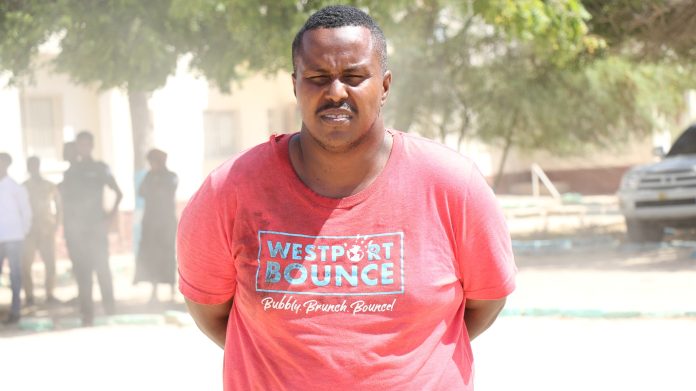According to the authorities, a Danish-Somali man was detained in the port city of Kismayo Somalia, for the suspected beheading of his mother.
The event, which happened on Sunday, was covered by the local media as well as Kismayo police.
Shortly after his arrest, the suspect, 37-year-old Hassan Abdullahi Abdi Shire, was spotted being questioned at a nearby police station. Shire is charged with brutally slaughtering his mother, Halimo Mohamed Omar, a Danish citizen, inside her home in Kismayo’s Farjano neighbourhood, said Kismayo deputy police chief Hussein Ali Hashi.
Shire’s possible mental condition is believed to be by the authorities, which sheds light on the larger problem of mental health treatment in Somalia.
The event also draws attention to the operations of Islamic rehab facilities in the nation, which assert to help people with drug addiction or mental health issues.
Shire was taken to Somalia from Denmark a year ago, according to the authorities. He was allegedly forced checked into a treatment facility by his mother, where he was subjected to physical abuse and incarceration. According to reports, authorities there took his passport.
The mother afterwards travelled back to Denmark. He was waiting for her when she returned just now. The circumstances leading up to the horrific murder were described by the deputy police commissioner Hashi. “He got a kitchen knife and beheaded her,” he said.
Hassan had the bloody knife in his hand when he was taken into custody on Sunday. He was about to behead his dead mother when the cops had to step in and stop him with force. The encounter resulted in injuries for him.
Shire will be prosecuted after his arrest, according to the authorities, and might get harsh punishment, possibly even the death sentence.
“A man who murdered his mother is unworthy of his family and our nation,” said the speaker. The police officer Hashi insisted, “He must receive the toughest punishment.
In the Somali diaspora, these centres are known locally as “Dhaqan celis,” and parents frequently seek them out when they believe their children have grown too westernised. The term “Dhaqan celis” refers to “return to culture” and originally referred to transferring people to live with family in Somalia. In recent years, however, these facilities have earned notoriety for tales of violence, torture, and even rape perpetrated on children and young men and women transported from the West.
A group of brave girls escaped from Daaru Sunna, a local rehabilitation centre in Mogadishu’s Hodan area, in January 2020. At least nine Somali females from the United Kingdom, Denmark, Sweden, and Canada participated in the well publicised escape. Somali officials later revealed that the girls overcame the guard assigned to the centre, allowing them to escape. Amaal, a 16-year-old Danish girl, was one of the daring escapees.
While there is no precise figure, local human rights advocates claim that there are hundreds of these treatment centres spread throughout places including as Mogadishu, Hargeisa, Garowe, Kismayo, Galkayo, and Bosaso.
The confinement and maltreatment of vulnerable people within these facilities raises worries about their well-being and safety.

